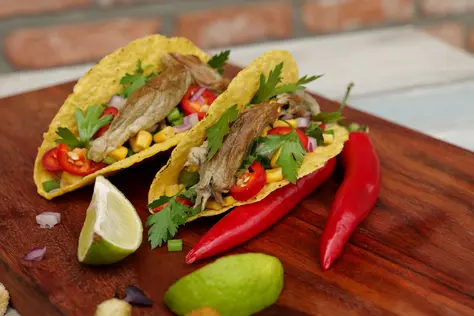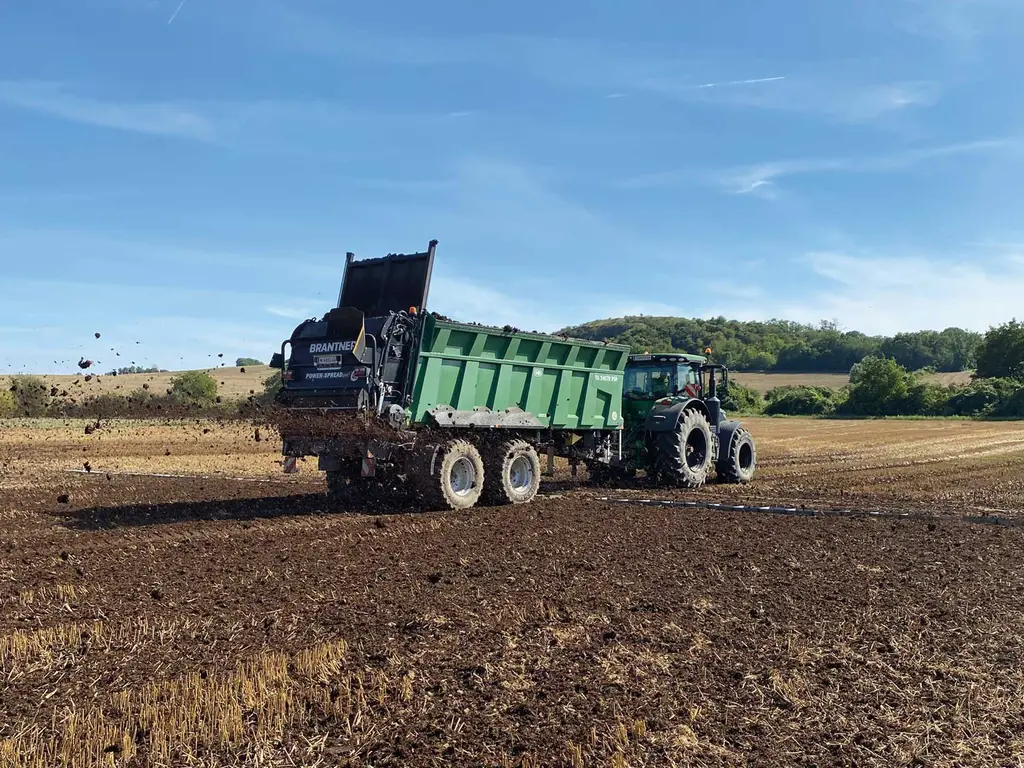Agriculture faces enormous challenges: it must feed a growing world population, protect the climate and environment, use resources efficiently – and remain economically viable. An innovative approach that is becoming increasingly important is known as cellular agriculture. This refers to biotechnological processes for producing food – beyond arable farming and traditional animal husbandry.
‘Cellular agriculture plays a central role in a sustainable food system for the future,’ says Florentine Zieglowski, co-founder and director of RESPECTfarms – an organisation that researches how farmers can actively participate in this development. She is also a member of the DLG New Feed & Food Committee. Zieglowski emphasises that it is important to note that this does not mean replacing traditional agriculture: ‘Cellular agriculture is intended to relieve an overburdened system and open up new avenues for coexistence.’ RESPECTfarms is therefore working on innovative business models to establish farmers as active producers in the cellular sector as well. The organisation is currently planning to set up the first pilot farm for cultivated meat in the Netherlands.
Positioning in the debate on sustainable agriculture
Conventional animal husbandry has reliably contributed to food security for decades – and in many regions it makes an important part of the circular economy.
At the same time, however, there is a growing demand to use natural resources such as land, water and feed even more efficiently and to further reduce emissions. This is precisely where innovative approaches such as mycoprotein come in. It can be produced from fungal mycelium, which is a renewable resource. At the same time, there is a growing demand to use natural resources such as land, water and feed even more efficiently and to further reduce emissions. This is precisely where innovative approaches such as mycoprotein come in. It can be produced on significantly less land and, if residues are used in the fermenter, with minimal use of resources.
Professor Philipp Benz from the Technical University of Munich, for example, emphasises the advantages of fungal biotechnology at an event organised by the Research Association of the Food Industry: ‘Fungal biotechnology offers solutions for securing, stabilising and improving the food supply for a growing world population while reducing greenhouse gas emissions.’ But does it work in practice?
Cellular agriculture: Animal products without animal husbandry
Cellular agriculture refers to the production of animal products such as meat, milk or eggs without the need to keep or slaughter animals. Instead, cell lines are cultivated in controlled environments such as bioreactors. The technology is based on proven biotechnology processes and promises significantly more resource-efficient food production.
Fungus-based foods (e.g. mycelium products such as those from Kynda Biotech) are based on the fermentation of fungal mycelium – i.e. non-animal cells. They do not fall under the category of animal cell cultivation, but rather belong to microbial fermentation. This means that mushroom-based products are not classic cellular agriculture – however, they use related biotechnological principles and are often considered part of a larger alternative production approach.
Kynda Biotech: Mycelium from by-products
One company that is already exploiting this potential is the Lower Saxony-based start-up Kynda Biotech GmbH: ‘We enable a resilient, efficient and sustainable food system by upgrading food-grade by-products locally, where they are produced,’ explains Benjamin Schramm-Völkening, Head of Business Development at the company. This means that instead of growing new raw materials, Kynda uses existing by-products – for example, from milk processing or sugar production – and turns them into a marketable, functional protein product.
From an economic perspective, the advantage lies in particular in the fact that the fermentation modules can be seamlessly integrated into existing operations – they help to reduce disposal costs and optimise untapped value creation potential. Even the fermentation residue can be used on site – for example, as fertiliser for the soil. ‘We see a lot of potential for strengthening regional cycles and improving soil health,’ says Schramm-Völkening.
Market launch in preparation
Kynda is currently working on the launch of its first mycelium-based products. From the company's point of view, factors such as taste, functionality and a competitive price are crucial for success in the mass market. ‘Fungus-based products will become viable for the mass market if they taste good, work well and are competitively priced,’ says Schramm-Völkening. Many of these requirements are already being met in the company's own process. When exactly the products will go on sale is still open – but preparations are in full swing.
How circular economy and food security come together
Kynda Biotech is just one example of a new generation of food tech companies that aim to combine technology, sustainability and economic efficiency. With its decentralised fermentation technology, use of food and agricultural by-products and a clear focus on the circular economy, it demonstrates how cellular agriculture works in practice – and how it can contribute to sustainable, resilient food production for the future.
New production fields for agriculture
Experts from science, business and practice will discuss the potential of innovative approaches such as these and how the agricultural and food industry of the future can be shaped at the Inhouse Farming – Feed & Food Convention 2025 (www.inhouse-farming.com/en/feed-food-convention). The DLG invites you to attend at the Congress Centre Hamburg from 30 September to 1 October. The focus will be on algae, alternative proteins, aquaculture, energy concepts, high-value crops, insects and cellular agriculture, among other topics.
Market size and share of mushroom proteins
- According to Global Market Insights, the market for fungal-based foods (fungal protein) is growing dynamically and is expected to reach a volume of around 9 billion US dollars by 2032. The key growth drivers are the global trend towards plant-based diets, growing health awareness and the search for sustainable protein sources. Europe is one of the leading sales regions.
- According to a survey conducted in 2025 by Plant Futures Collective, HarrisX and the Good Food Institute Europe, there is growing interest in plant-based foods in Germany – a trend that also benefits mushroom-based products. Around 40% of respondents have already tried plant-based alternatives, and around a third consume them regularly. The study also shows that many consumers are open to innovations in the food sector – provided that the taste, price and availability are right.
Great potential - Germany as a favourable location
According to Kynda, Germany offers favourable conditions as a research location – thanks to excellent research facilities, growing availability of raw materials and an increasingly innovation-friendly society. However, the company sees room for improvement in terms of funding instruments:
‘Funding programmes are often difficult to access and overly bureaucratic. We need simpler procedures, faster approvals and genuine relief for innovative companies,’ demands Schramm-Völkening. ‘Funding programmes are often difficult to access and too bureaucratic. We need simpler procedures, faster approvals and real relief for innovative companies,’ demands Schramm-Völkening.
Inhouse Farming – Feed & Food Convention
Controlled Environment Agriculture – ensuring global food security through new agricultural production systems is one of the key tasks for the future.
‘Inhouse Farming - Feed & Food’ is the DLG's platform for the agricultural and food systems of the future. Closely linked to agricultural practice, it offers technical information, perspectives, innovations and business – from feed to food.
The Inhouse Farming Feed & Food Convention 2025 on 30 September and 1 October at the Congress Centre Hamburg brings together all stakeholders in the value chain: from farmers to food retailers – from aquaculture to cellular agriculture.
Find out more on: Home - Inhouse Farming
























































